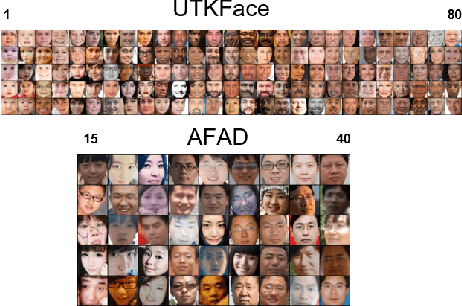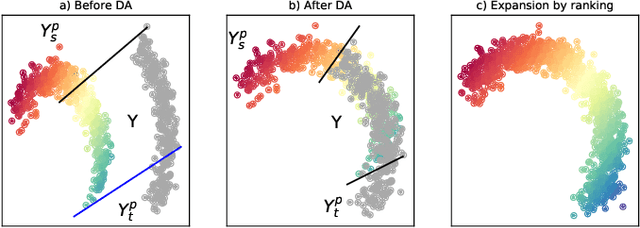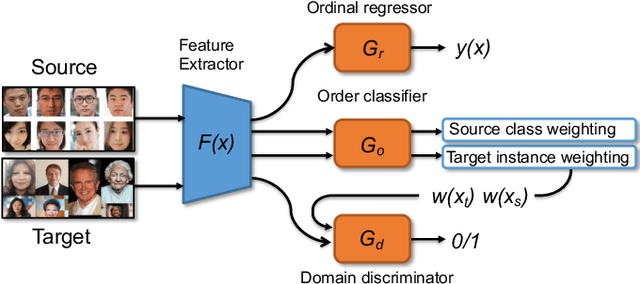Universal Domain Adaptation in Ordinal Regression
Paper and Code
Jun 22, 2021



We address the problem of universal domain adaptation (UDA) in ordinal regression (OR), which attempts to solve classification problems in which labels are not independent, but follow a natural order. We show that the UDA techniques developed for classification and based on the clustering assumption, under-perform in OR settings. We propose a method that complements the OR classifier with an auxiliary task of order learning, which plays the double role of discriminating between common and private instances, and expanding class labels to the private target images via ranking. Combined with adversarial domain discrimination, our model is able to address the closed set, partial and open set configurations. We evaluate our method on three face age estimation datasets, and show that it outperforms the baseline methods.
 Add to Chrome
Add to Chrome Add to Firefox
Add to Firefox Add to Edge
Add to Edge